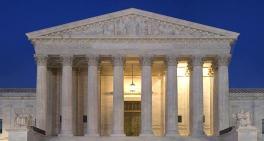U.S. Bankruptcy Courts V
United States Courts
Bankruptcy is not the only legal status that an insolvent person may have, and the term bankruptcy is therefore not a synonym for insolvency. In some countries, such as the United Kingdom, bankruptcy is limited to individuals, and other forms of insolvency proceedings are applied to companies. In the United States, bankruptcy is applied more broadly to formal insolvency proceedings. In France, the cognate French word banqueroute is used solely for cases of fraudulent bankruptcy, whereas the term faillite is used for bankruptcy in accordance with the law.
New Mexico - ECF
New York Eastern - ECF
New York Northern - ECF
New York Southern - ECF
New York Southern (web) - ECF
New York Western - ECF
North Carolina Eastern - ECF
North Carolina Middle - ECF
North Carolina Western - ECF
North Dakota - ECF
Northern Mariana Islands - ECF
Ohio Northern - ECF
Ohio Southern - ECF
Oklahoma Eastern - ECF
Oklahoma Northern - ECF
Oklahoma Western - ECF
Oregon - NextGen
Pennsylvania Eastern - ECF
Pennsylvania Middle - ECF
Pennsylvania Western - ECF
Related listings
-
U.S. Courts of Appeals
United States Courts 07/30/2017There are 13 appellate courts that sit below the U.S. Supreme Court, and they are called the U.S. Courts of Appeals. The 94 federal judicial districts are organized into 12 regional circuits, each of which has a court of appeals. The appellate ...
-
U.S. Supreme Court
United States Courts 07/30/2017U.S. Supreme Court The Supreme Court is the final judge in all cases involving laws of Congress, and the highest law of all — the Constitution. The Supreme Court, however, is far from all-powerful. Its power is limited by the other two branches...
-
National Courts
United States Courts 06/30/2017Judicial Panel On Multidistrict Litigati - ECF U.S. Court Of Federal Claims - ECF U.S. Court Of International Trade - ECF

Car Accident Lawyers in New Rochelle, New York
If you have gotten in a car accident, it could seriously change your life. Whether the accident was caused by the other party’s fault or a fault of your own, you’ll want to to make sure that you are ready to prepare yourself for any cases that might follow.
Immediately following any type of car accident, it is important to take certain steps to ensure that the courts will treat you with respect and fairly. First, assess your mental and physical condition. Make sure right after the accident, you document any information regarding the accident and situation, it can be of great help later on.
You’ll want to make sure that you seek professional help for any medical conditions you may be experiencing. Do not wait to seek medical attention, you’ll want to make sure that you have documented evidence of the injury that was caused by the accident. The amount of treatment is also taken into consideration in every case.




